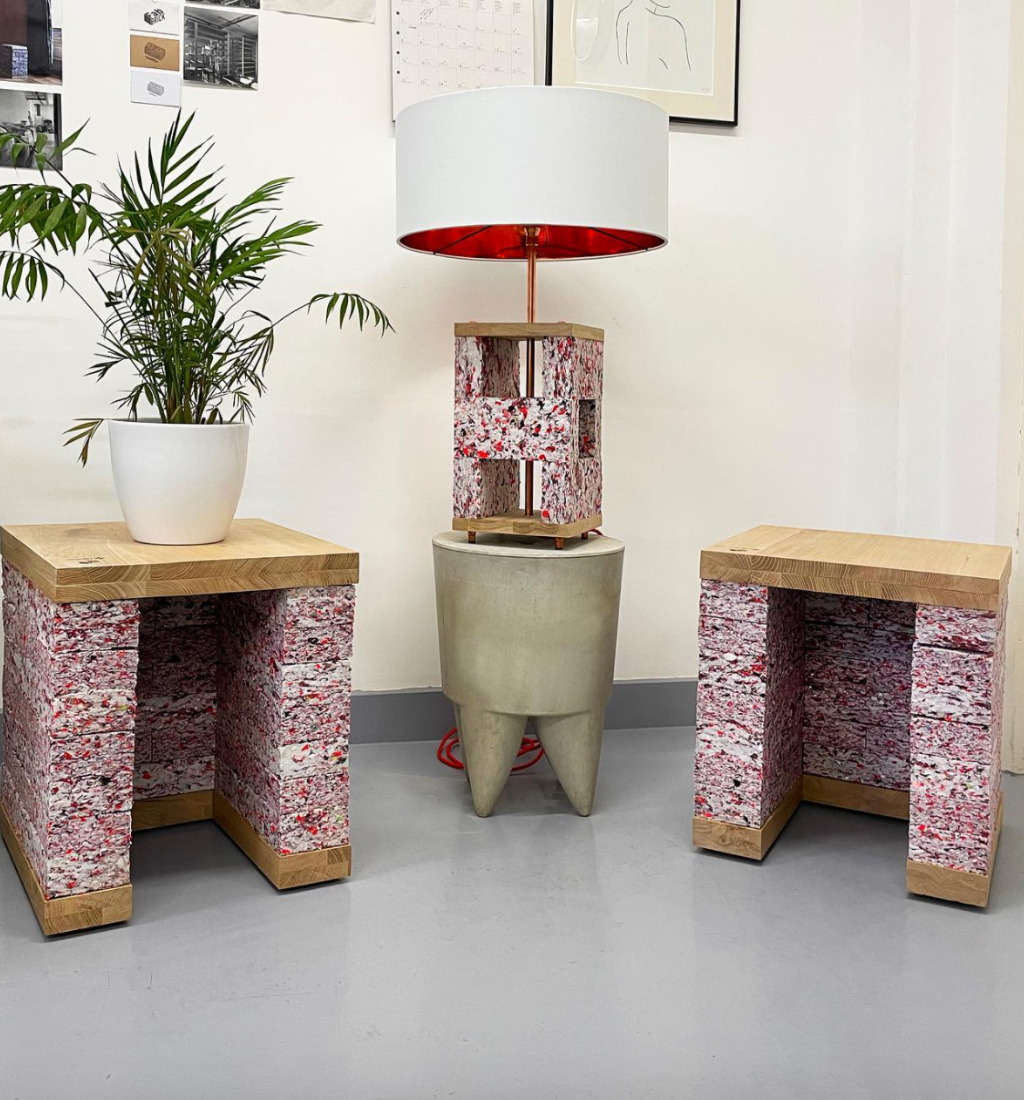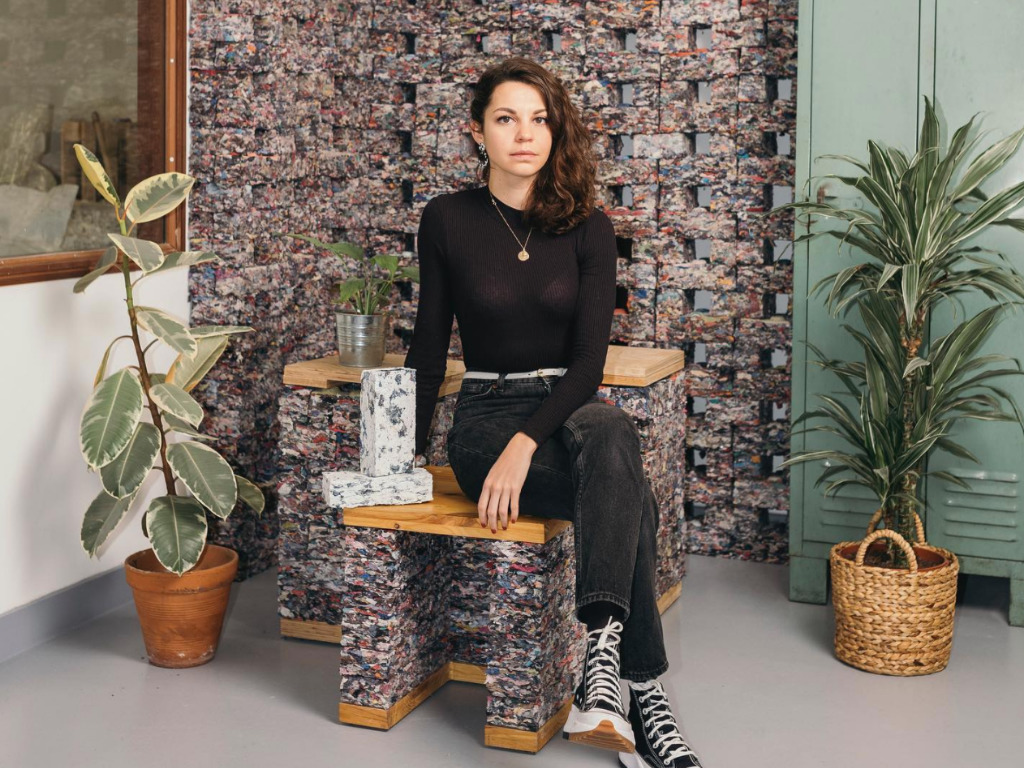4 Mins Read
Founded by Clarisse Merlet, France-based company FabBRICK works to upcycle textile waste into bricks that are supposedly great thermal and acoustic insulators.
In France, textile waste is estimated to be around 4 million tons, however, less than a third of this is collected for reuse or recycling in the country.
Back in 2017, architecture student Clarisse Merlet was shocked to discover the tremendous amount of global textile waste, not to mention the shocking amount of waste prevalent in the construction industry. This got her thinking and ideating: what if she could make use of the very same resources that have already been extracted for building? And so, FabBRICK was born, a company that develops decorative and insulative bricks out of old clothes. In April 2019, the company received support by closing a crowdfunding round of EUR€10,000 (approx. US$11,000) that was used to develop a brick machine to industrialize the production process.
Each brick uses about two to three T-shirts’ worth of shredded material that Merlet purchases from a supplier in Normandy. Apart from cotton, polyester, elastane, PVC, can be used in the process, and with an ecologically-friendly glue that Merlet developed herself, these scraps are first mixed and then pressed into a brick mold and without any human intervention in this process, the mold uses mechanical compression to form the bricks. These wet bricks are then removed from the mold and left to dry for two weeks before they can be used.
In an interview with Brut, Merlet said that being an architecture student made her look for ways to build differently. “So I made different prototypes with different ecological glues and tried different ways of putting the textile in the mold to compress it. Eventually I came up with a prototype that held up well, reacts well to fire and holds up against moisture, too.”
Available in four different sizes, the company says the bricks are an excellent thermal and acoustic insulator, meaning that they work for room partitions, decorative walls in retail stores, and can also be used to make furniture such as lamps, tables, stools, and more. While they can be used in construction, they are designed for structural purposes, something Merlet is working on.

Being an architecture student made me look for ways to build differently. So I made different prototypes with different ecological glues and tried different ways of putting the textile in the mold to compress it. Eventually, I came up with a prototype that held up well, reacts well to fire, and holds up against moisture, too
Clarisse Merlet, Founder of FabBRICK
According to the company’s website, “Since our creation at the end of 2018, we have already designed more than 40,000 bricks which represent 12 tons of recycled textiles. What’s more? FabBRICK can personalize the color of your wall with the clothes you decide to recycle.”
FabBRICK has worked with the Parisian shopping center Galeries Lafayette for a handmade series, and with Vinci Construction to convert its own worksite uniforms into stools and lamps.
In an interview with Novethic, Merlet showed a prototype of a brick made from shredded surgical masks that could help tackle the pandemic-related waste. “We don’t yet know how we’re going to sell it, because it still has to pass a number of laboratory tests, notably fire tests, but the idea is to build some small furniture pieces and see how they work.”
Merlet is also the winner of the Faire Paris competition, Petit Poucet 2019, Start’in ESS 2019 and Prix Gabriel 2020).
Recently, snack Food company Mondelez Philippines announced that it would “substantially” invest in plastic waste management and has teamed up with Manila-based social enterprise The Plastic Flamingo to recycle some 40 metric tons of post-consumer plastic packaging waste into eco-bricks that will be utilized in creating disaster relief shelters or huts for use during typhoons and similar calamities.
Around the world, several companies have come forward and offered solutions to create new products out of recycled waste.
For instance, India-based startup, Malai, has developed bacterial cellulose grown from leftover coconut water and successfully converted the biocomposite into a substance that resembles traditional leather and Phool, from the same country is using floral waste to make vegan-friendly leather materials.
Global fast-fashion giant H&M has jumped on this bandwagon by partnering up with iconic 1990s jeans brand Lee to launch a sustainable and size-inclusive denim collection that will include recycled cotton jeans made out of 80% post-industrial waste. In addition, the giant joined forces with startup re:newcell to become the first brand to begin using their proprietary sustainable fiber Circulose, which is made from discarded textile waste.
Lead image courtesy of FabBRICK.




